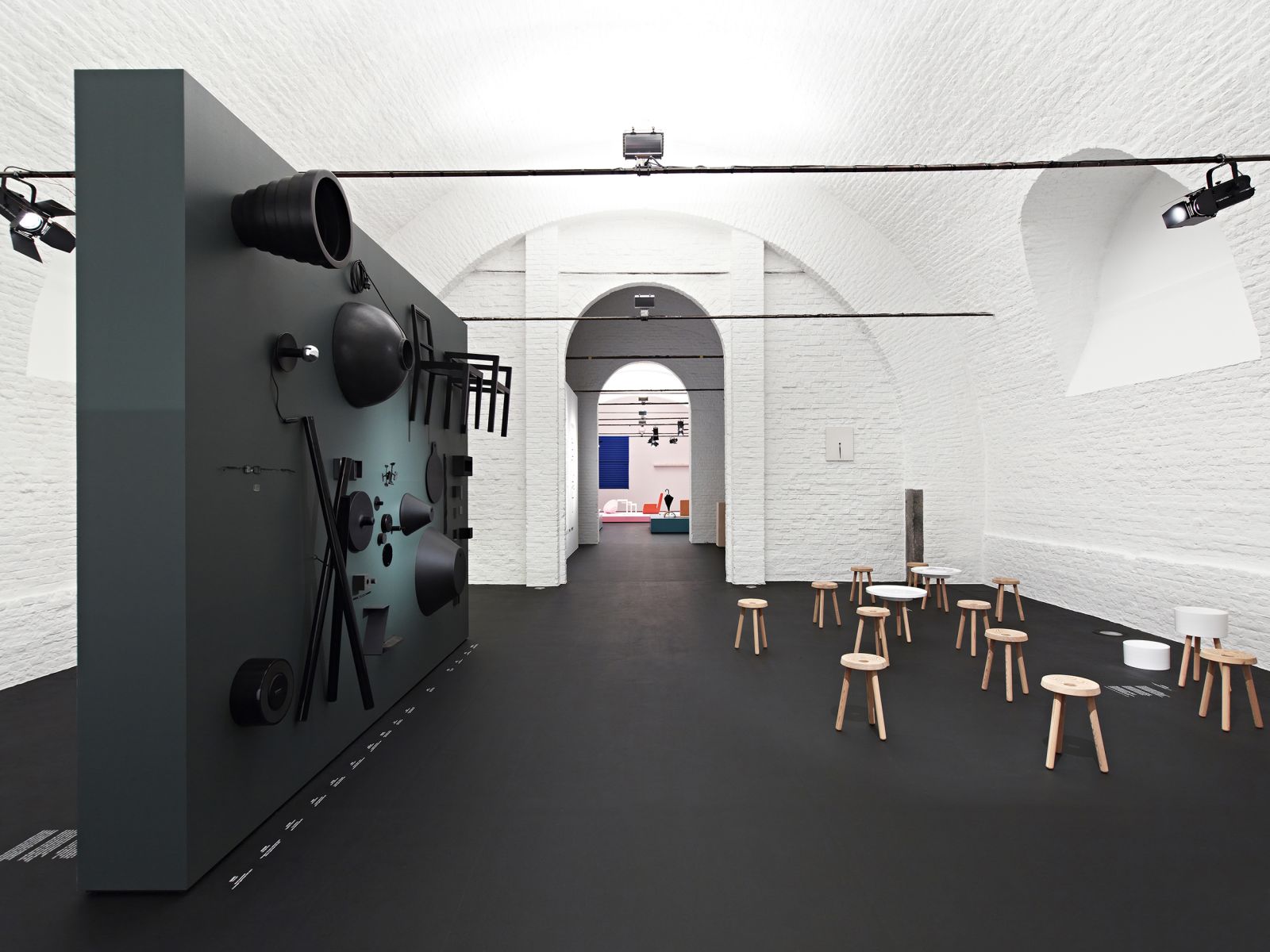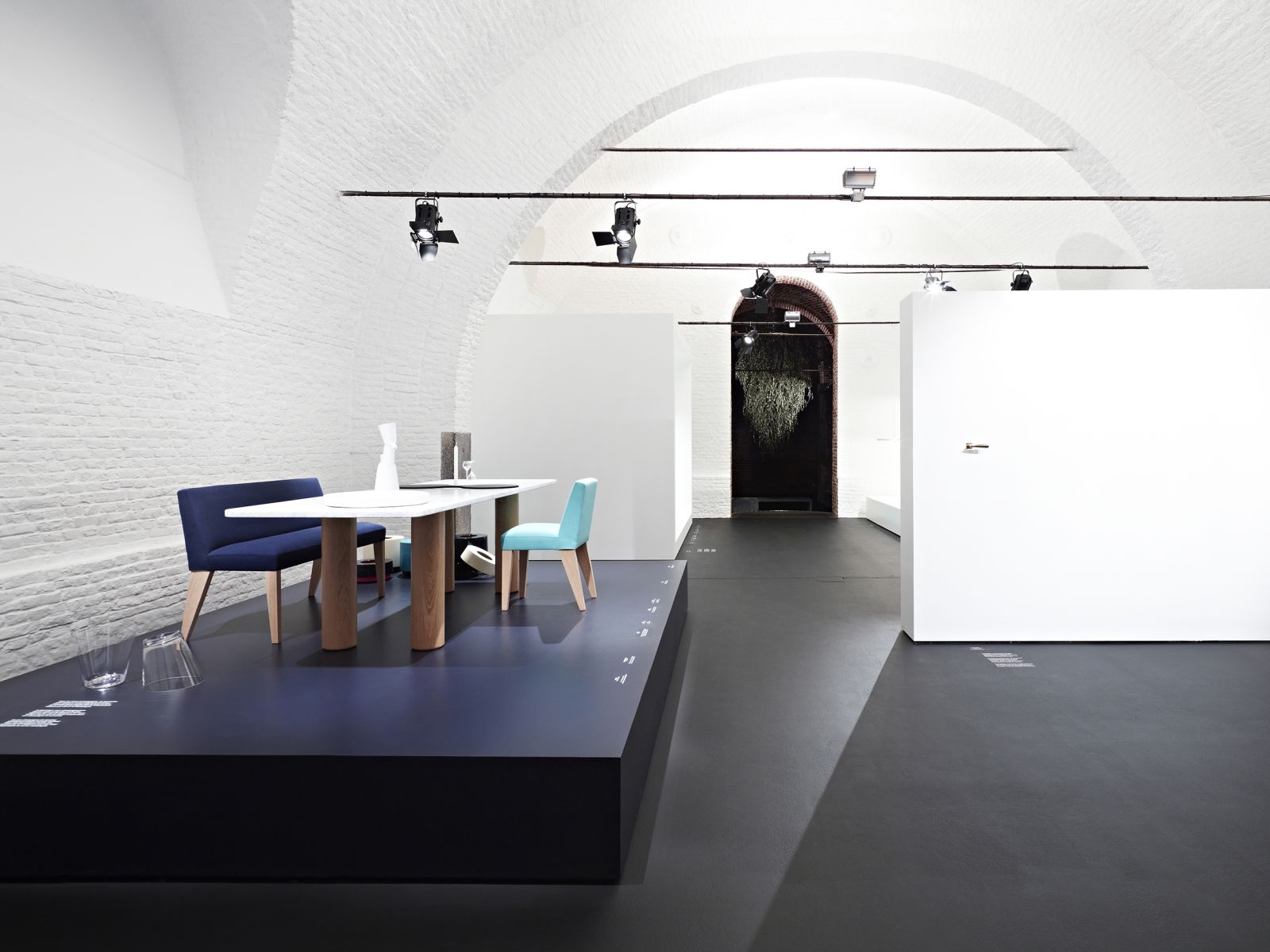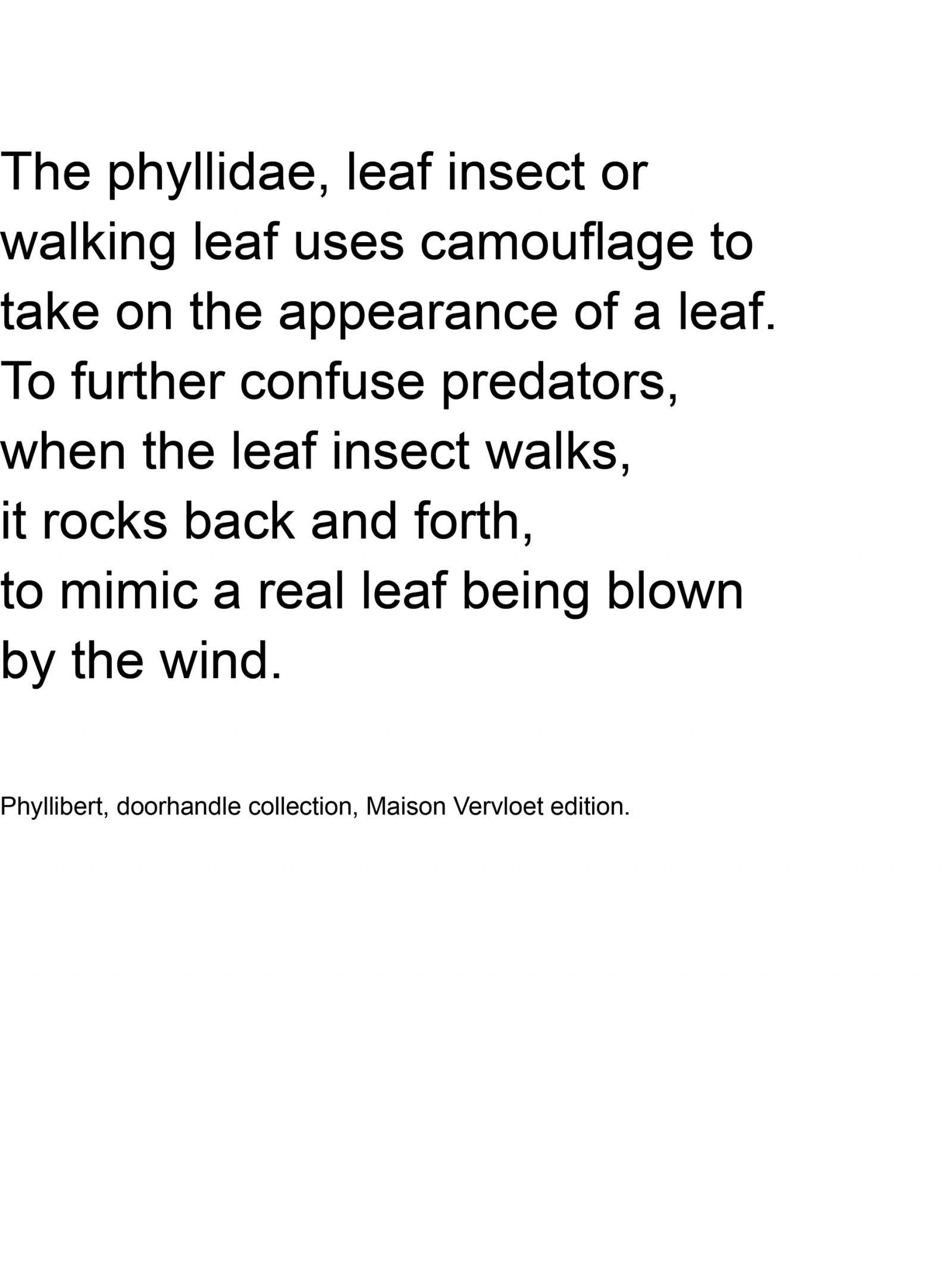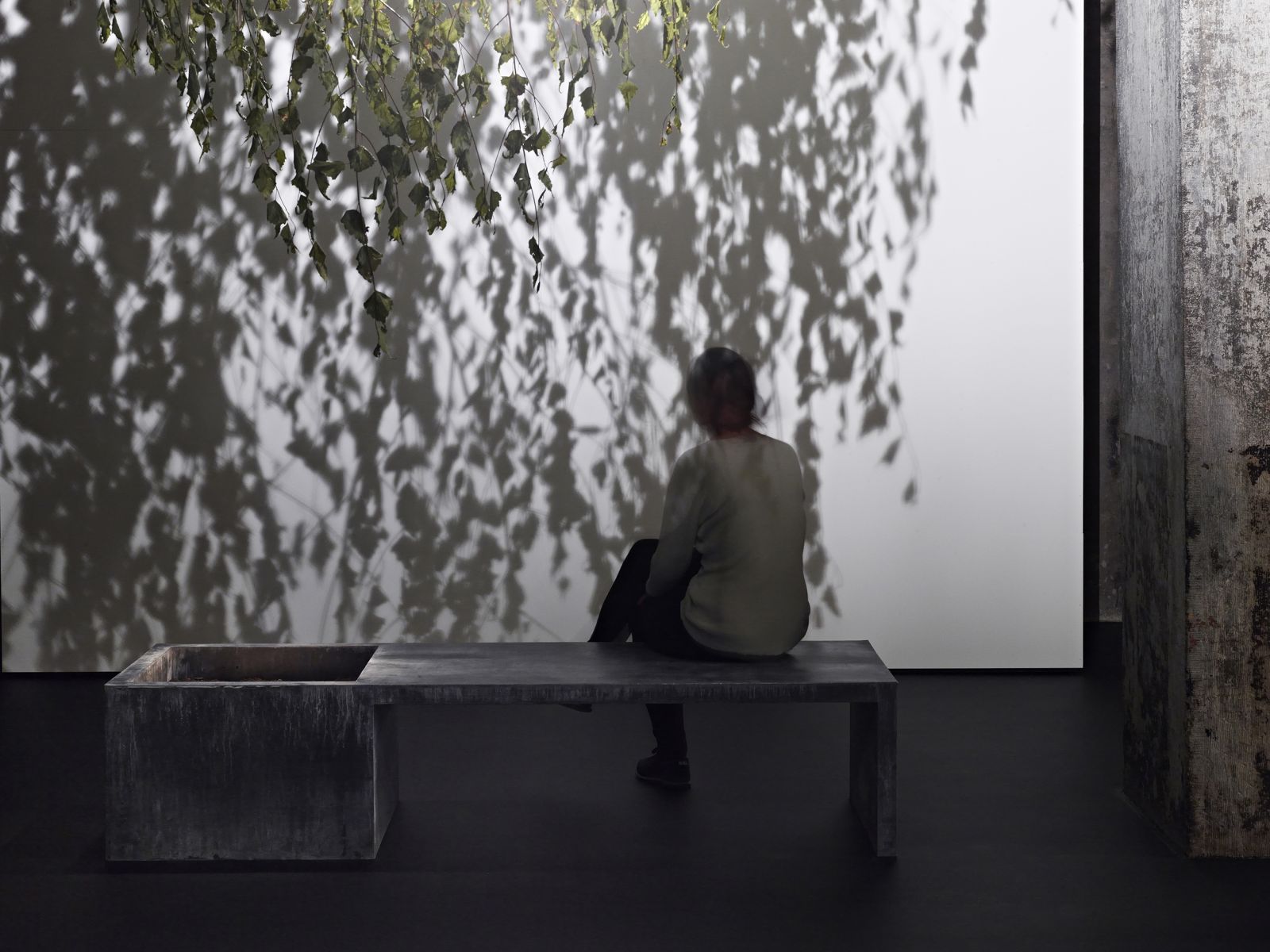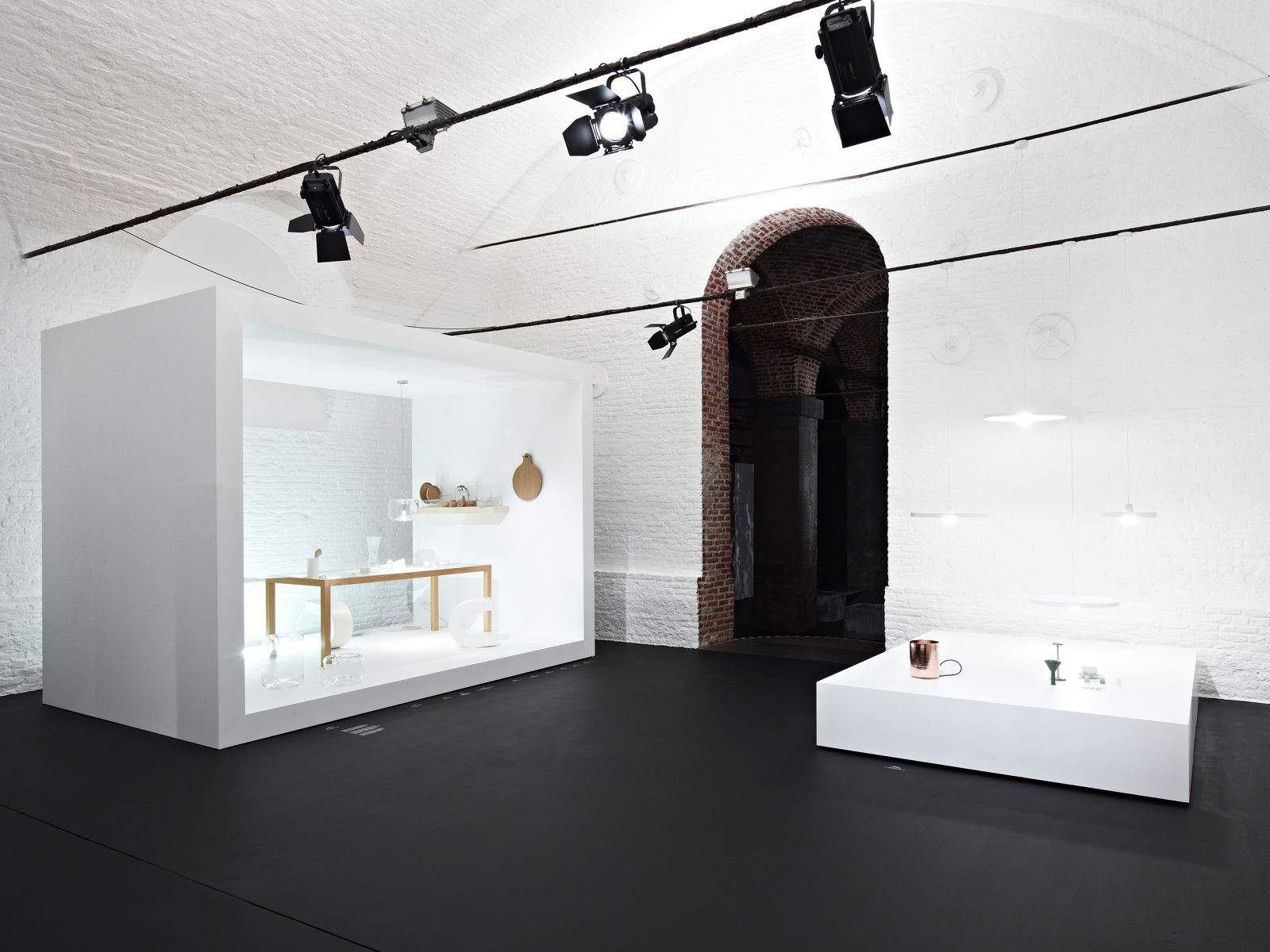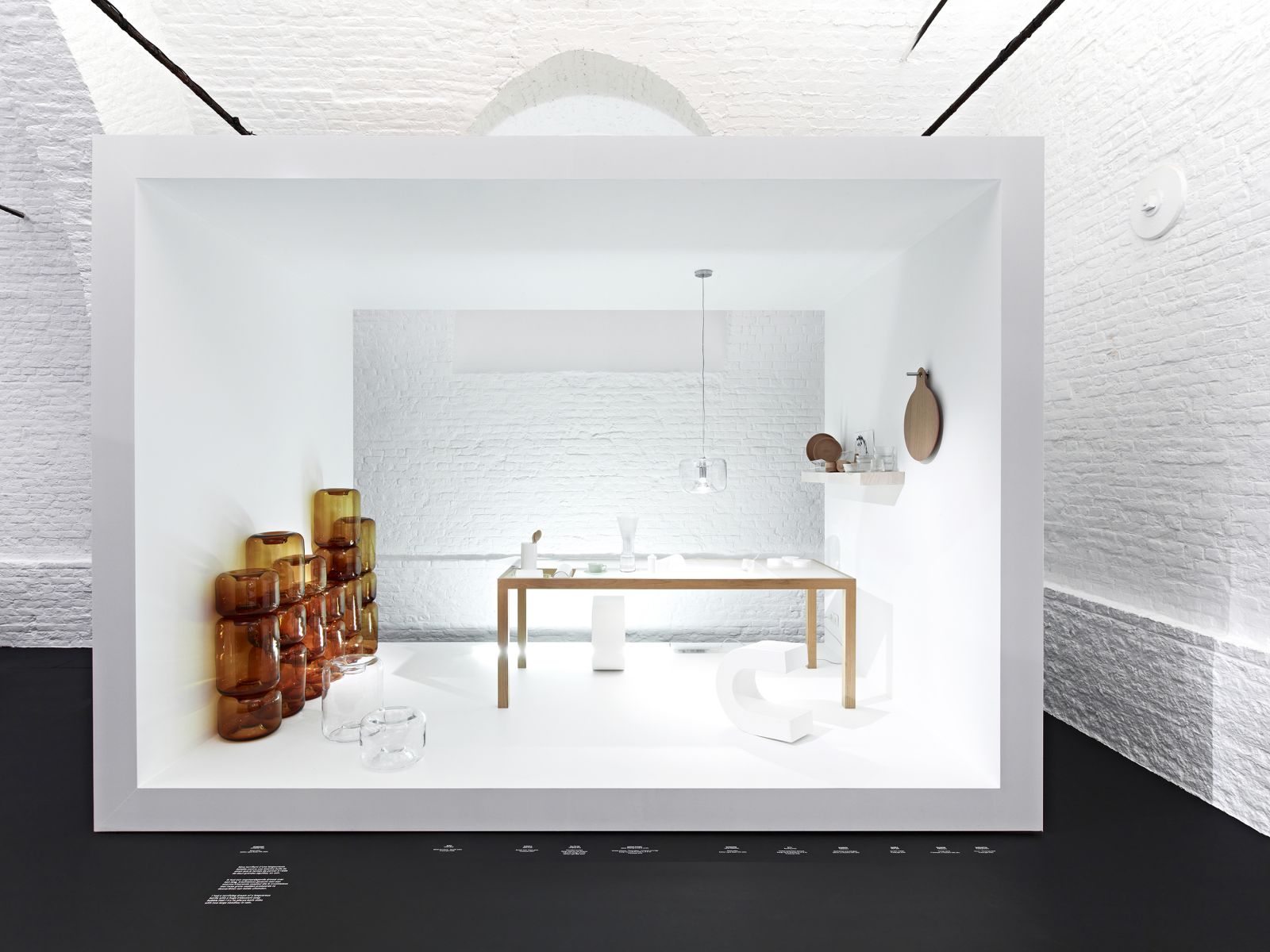Moodboards_monographic exhibition
for
Grand-Hornu CID
by Jean-François D'Or
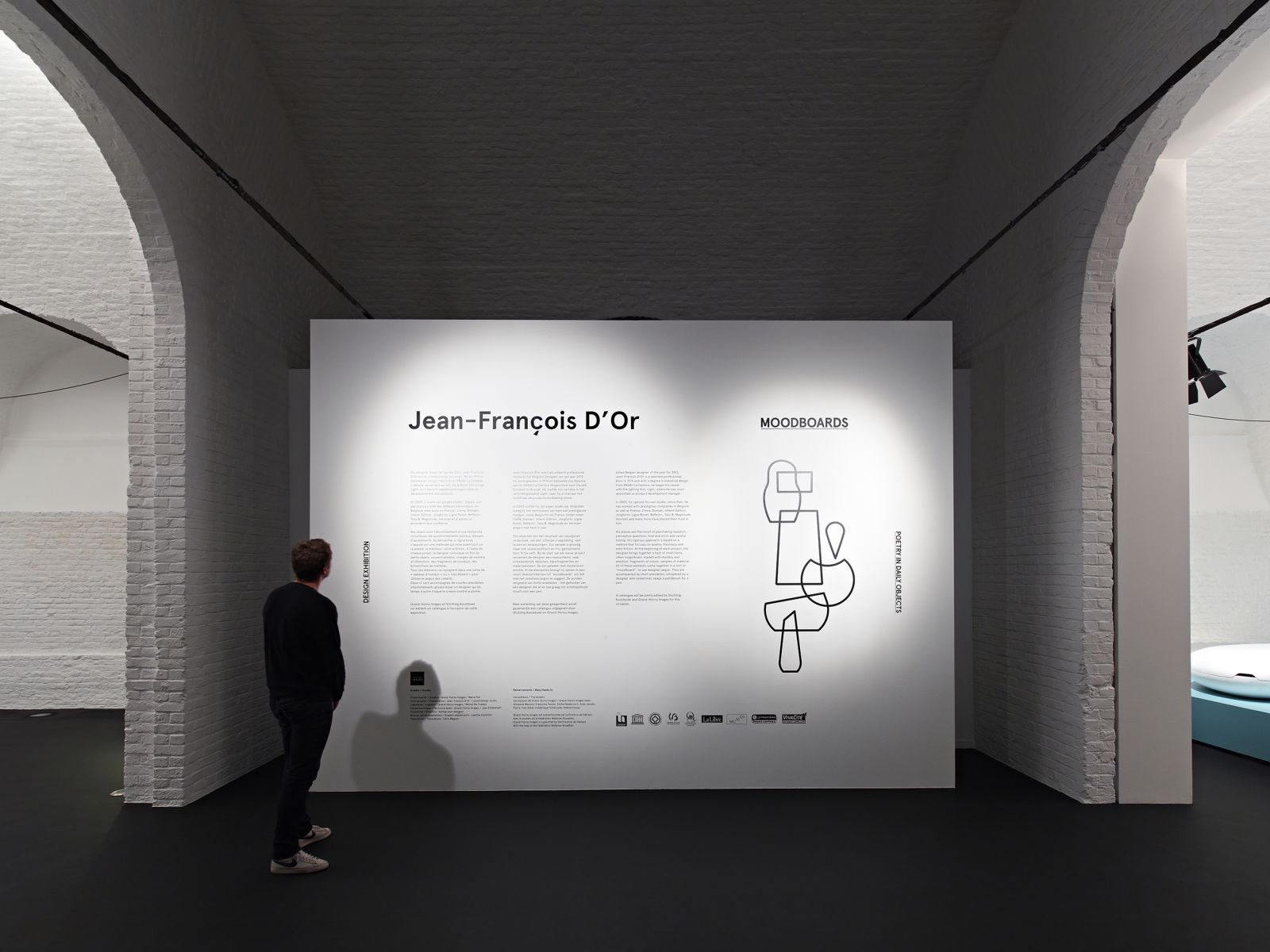

Moodboards exhibition
Simplicity is complexity resolved, according to Constantin Brancusi. This is the key to understanding the world of Jean-François D’Or. The elemental, stripped-down shapes of each of his pieces might trick you into thinking they are very ordinary. And yet, they are the result of painstaking research, perceptive questions, trial and error and careful honing. Jean-François D’Or is a perfectionist. No detail escapes his beady eye. Unusually, this approach, which is so rigorous, is based on a method that veers towards poetry, freshness, even fiction. At the beginning of each project, the designer brings together a host of small items, often insignificant, loaded with mystery and emotion, fragments of colour, samples of material. All of these elements forge links with each other, and come together in a sort of landscape that defines an ambiance, a “moodboard”, to use designer jargon. These are his little working secrets, a reflection of a mental universe into which Jean-François D’or invites us in the first exhibition dedicated exclusively to his work.
Born in 1974, Jean-François D’Or is now a flourishing designer, productive without being overly so, discrete but communicative at the same time. After obtaining his degree in industrial design from ENSAV La Cambre in 1998, this young man from Brussels began his career with lighting company Light, where he joined the design team and worked alongside Maarten Van Severen and Hans De Pelsmacker. There he was appointed product development manager. In 2003, he opened his own studio: in no time at all, his pieces caught the eye of prestigious companies in Belgium as well as France: Cinna, Domani, Interni Edition, Ligne Roset, Reflect+, Toss B, Vervloet and many more put their trust in him. As well as lighting, he began to develop indoor and outdoor furniture as well as pieces made from a range of materials including glass and ceramics. Taking into account both companies requirements and users needs
, his work is always tempered with a need for correctness. His designs are calm, simple and logical, standing out as much for their clarity and readability as for their intrinsic poetry.
His pieces have been exhibited many times in Brussels, Milan, Paris, London, Stockholm... Voted Belgian designer of the year in 2013, Jean-François D’or continues on a steady path of flawless rigour.
Link to monographic book.
Curator : Marie Pok, Grand Hornu CID.
Scenography : Jean-François D’Or, Loudordesign studio.
Technic : Jean Estiévenart, Grand Hornu CID.
Catalogue : J-F D'Or, Moodboards, poetry in daily objects. Edition Stichting Kunstboek / CID.
Graphics : Kidnap your designer.
Pictures © Lenzer Photographers Peter Verplancke.
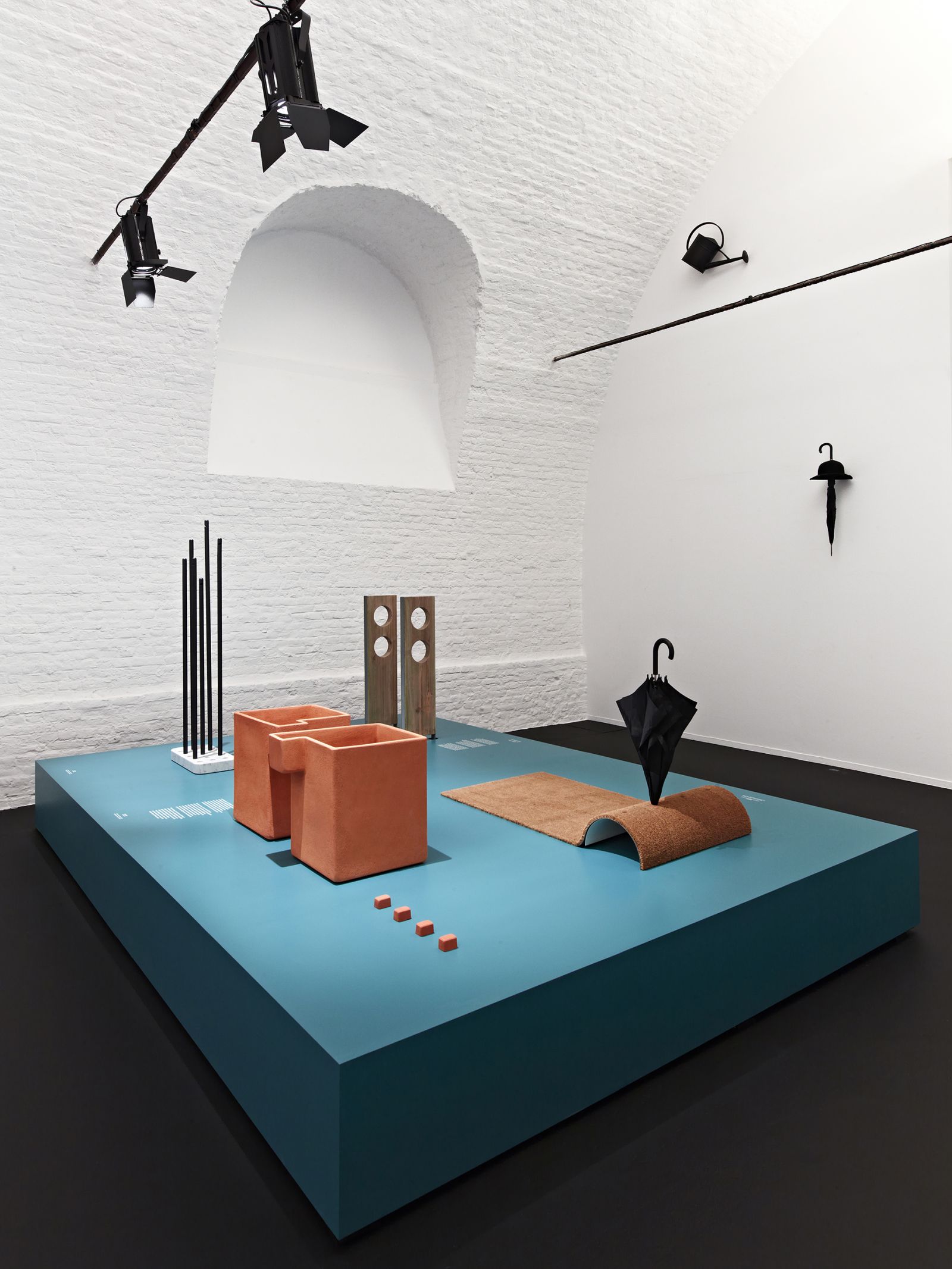

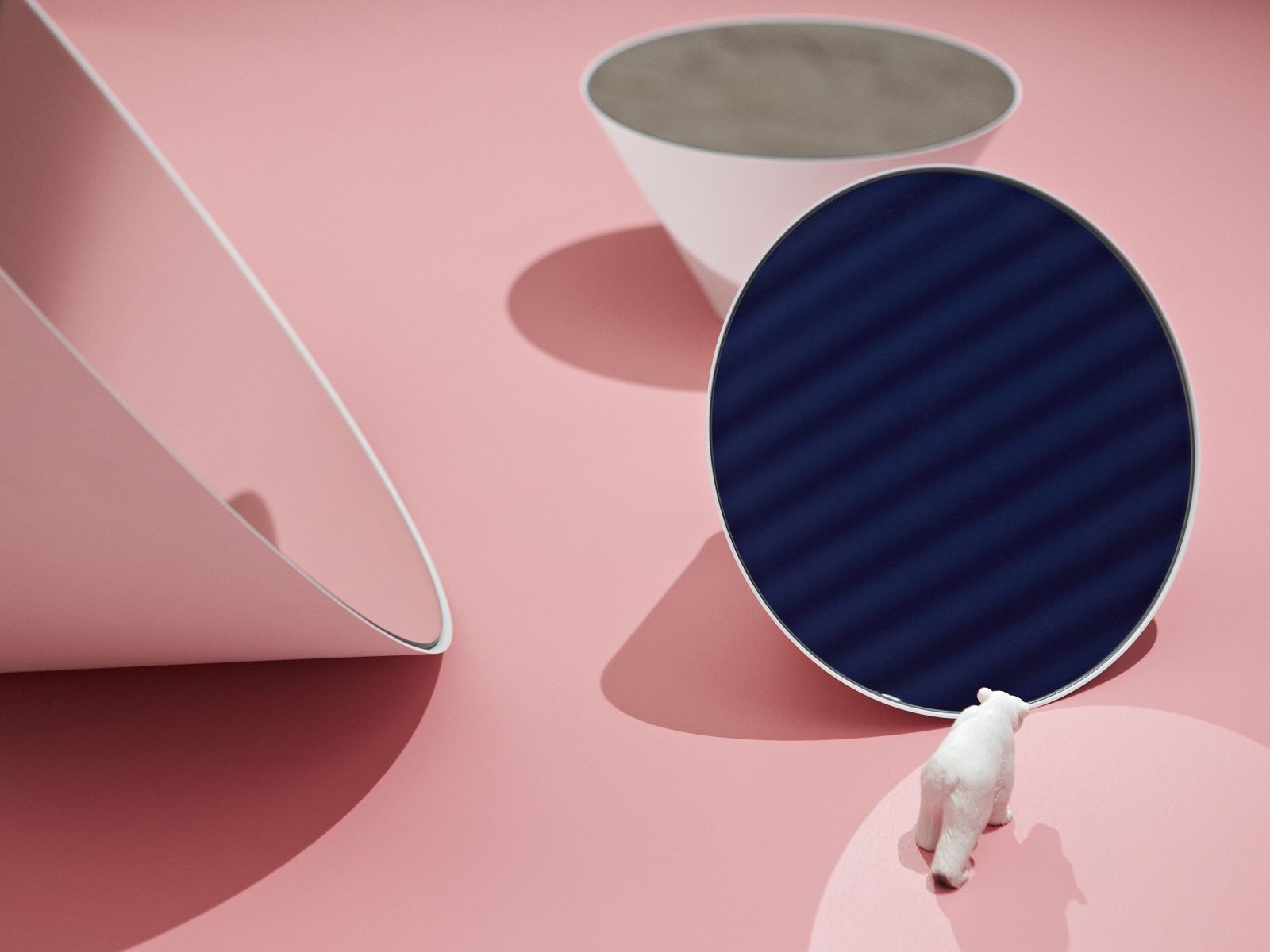
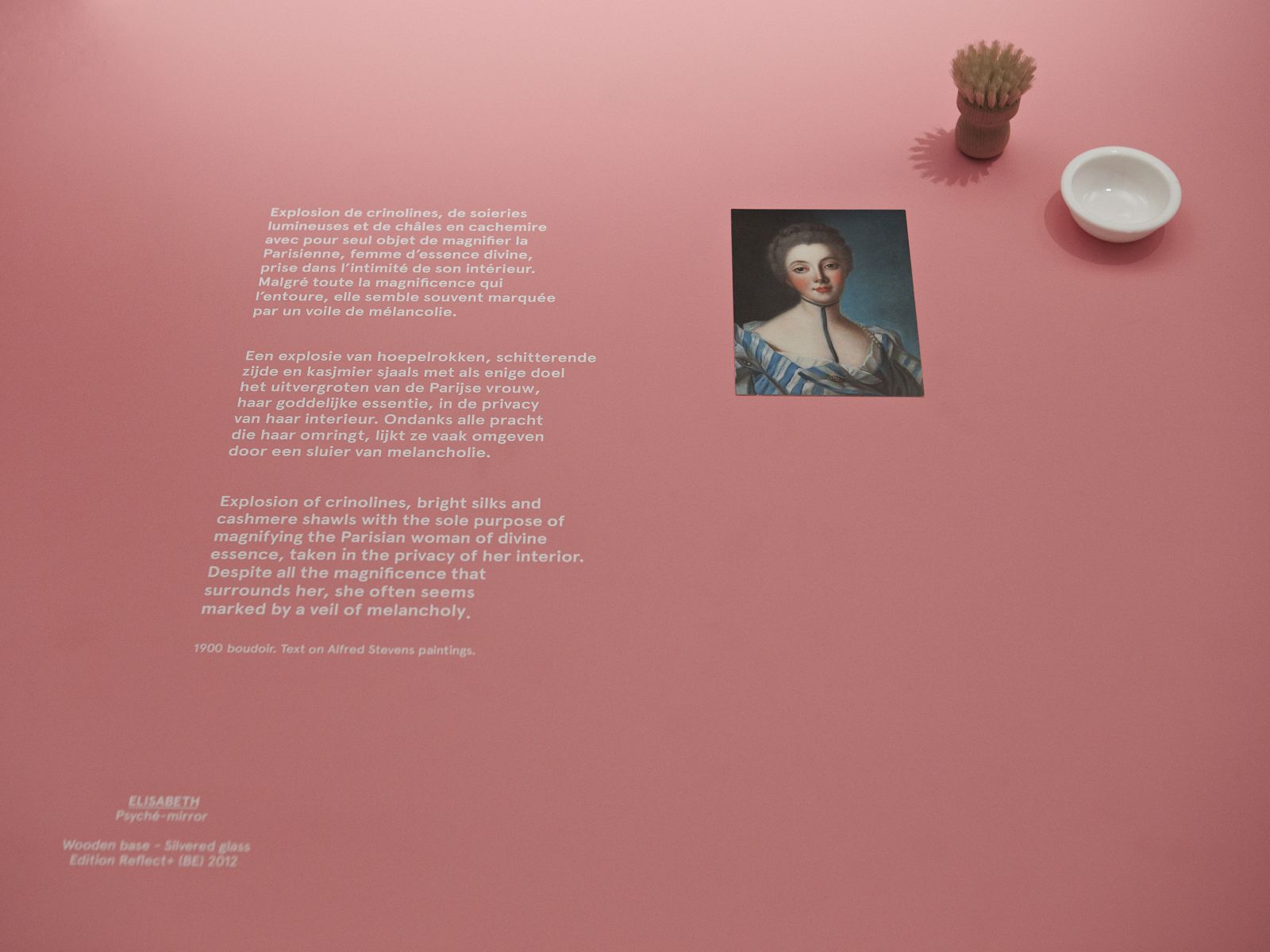
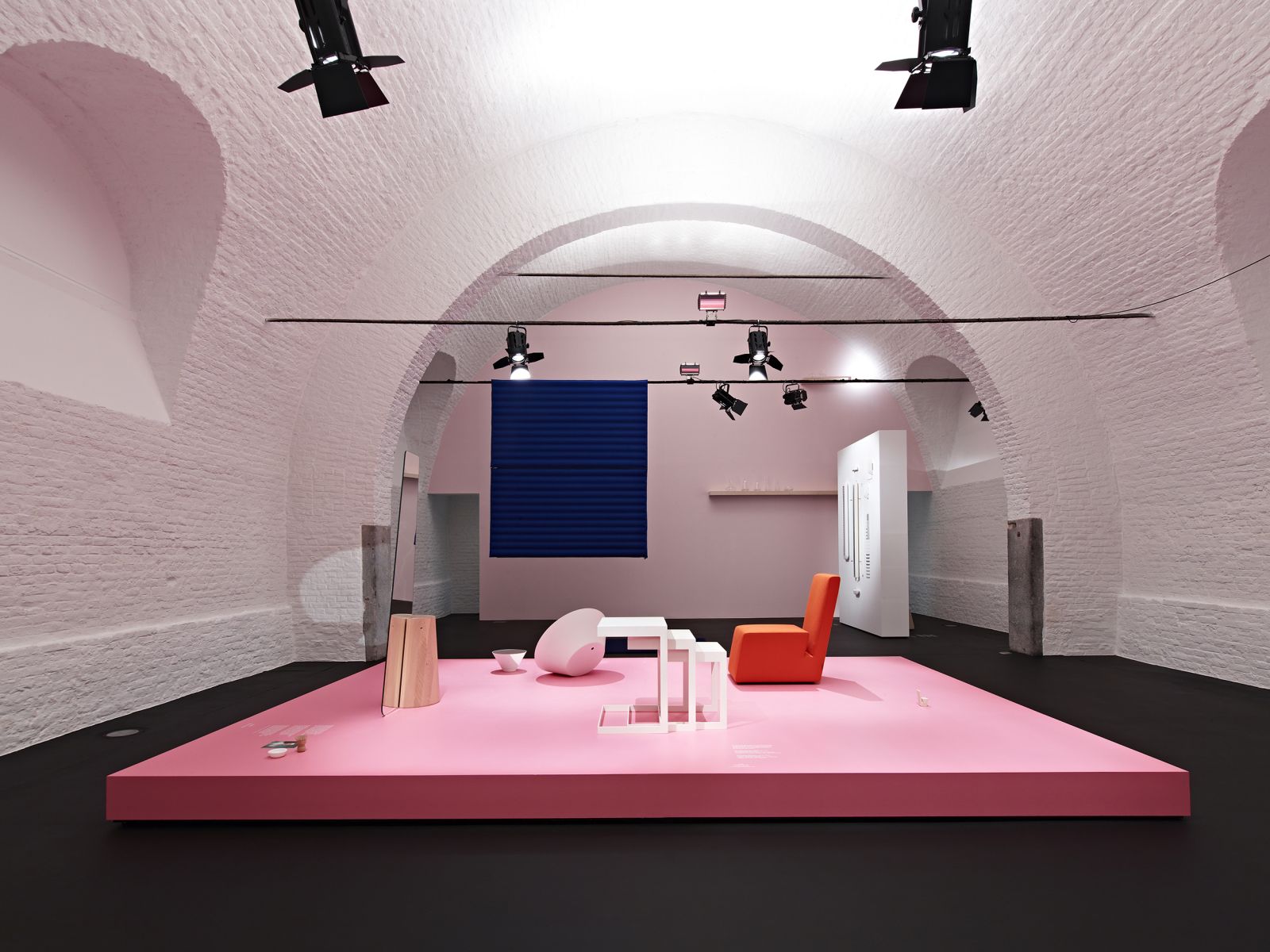
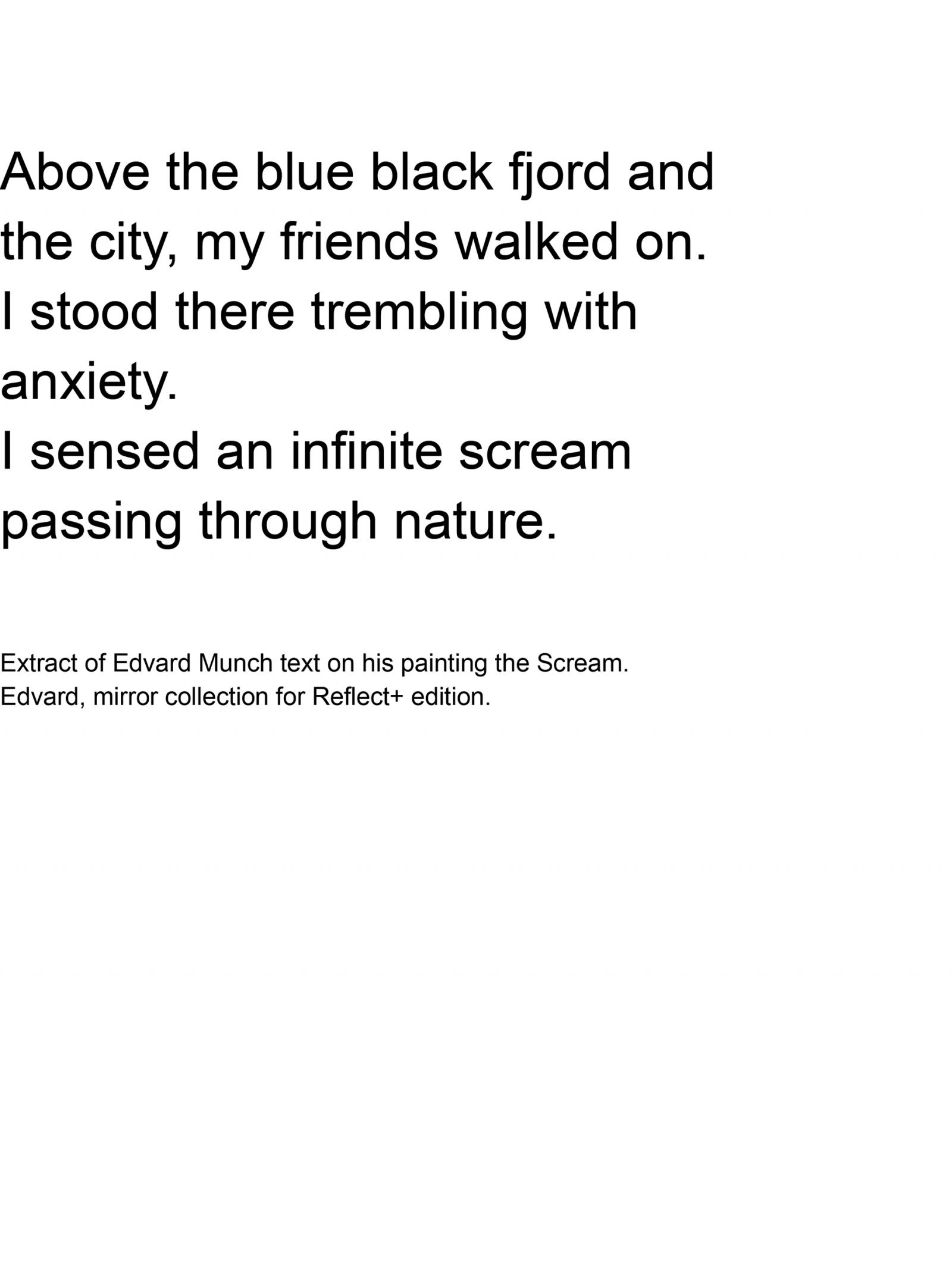
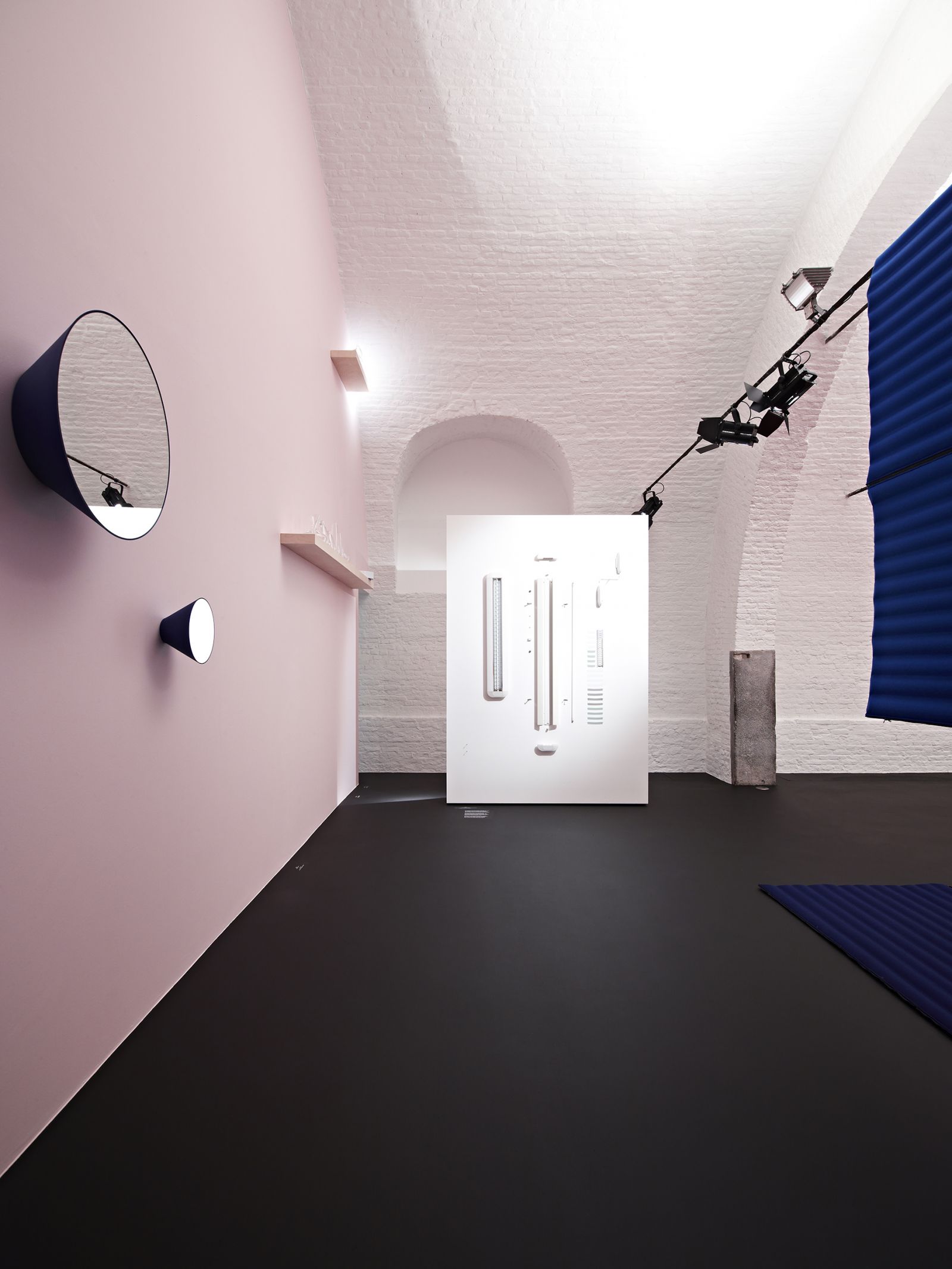
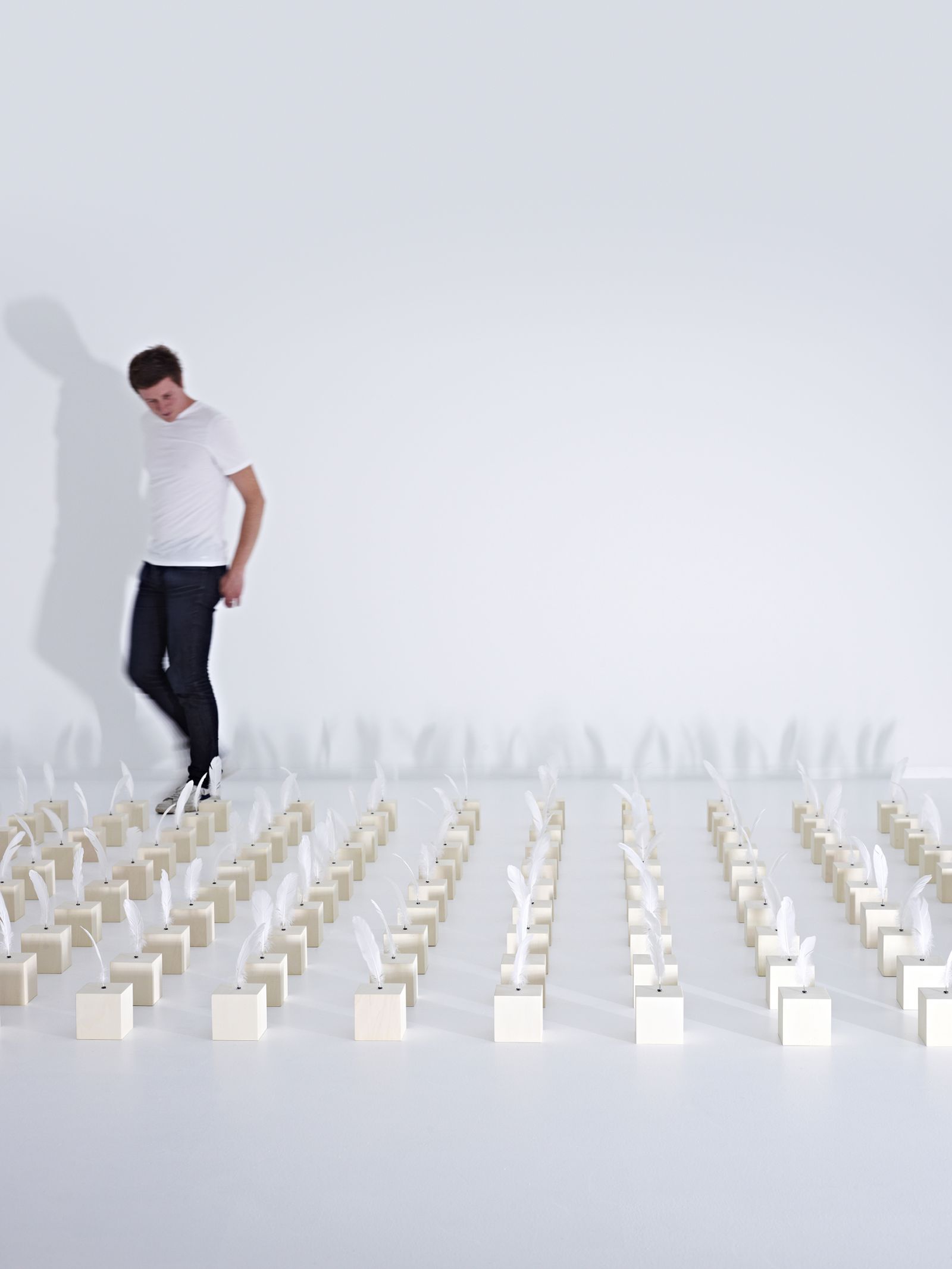


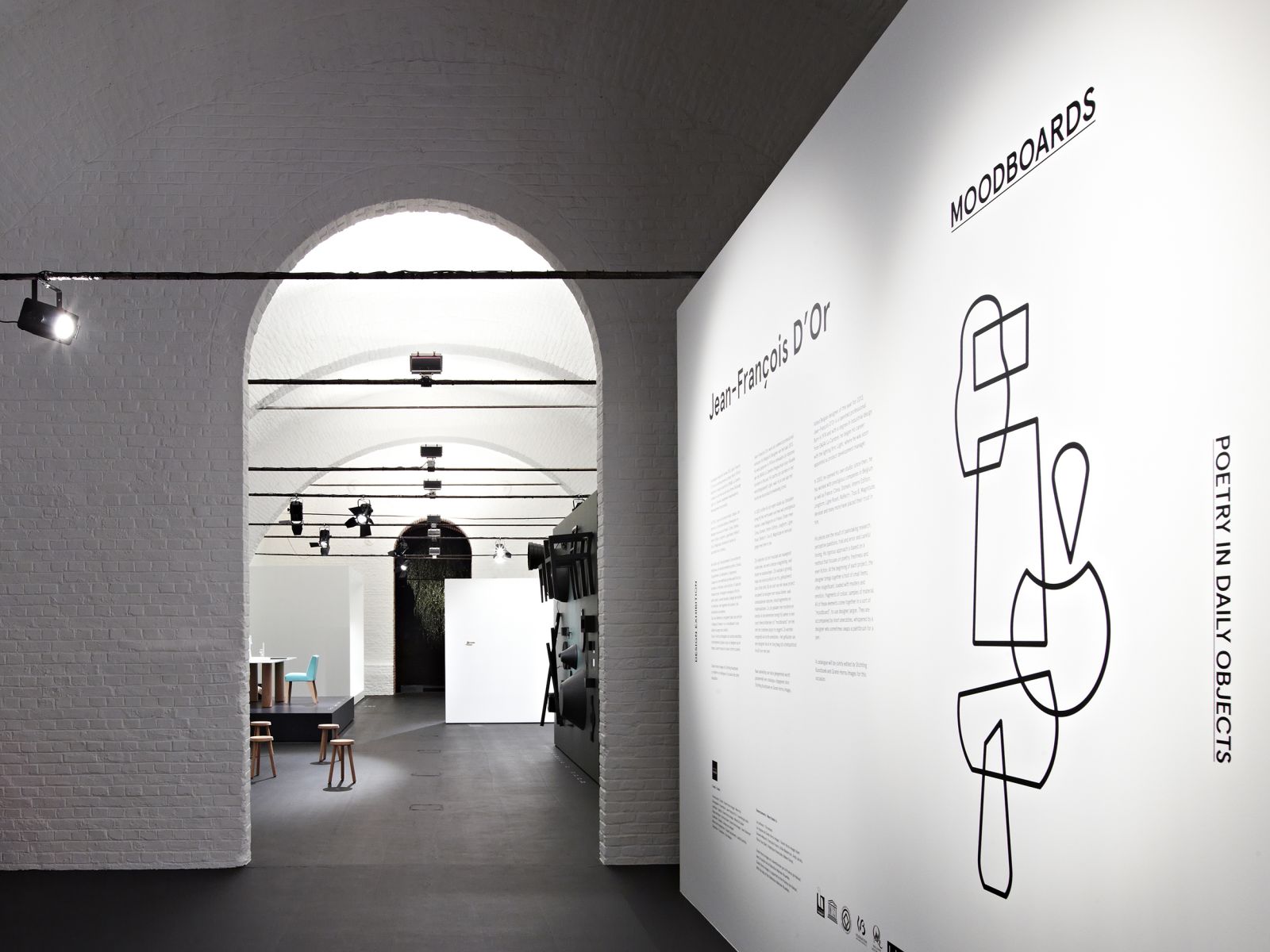

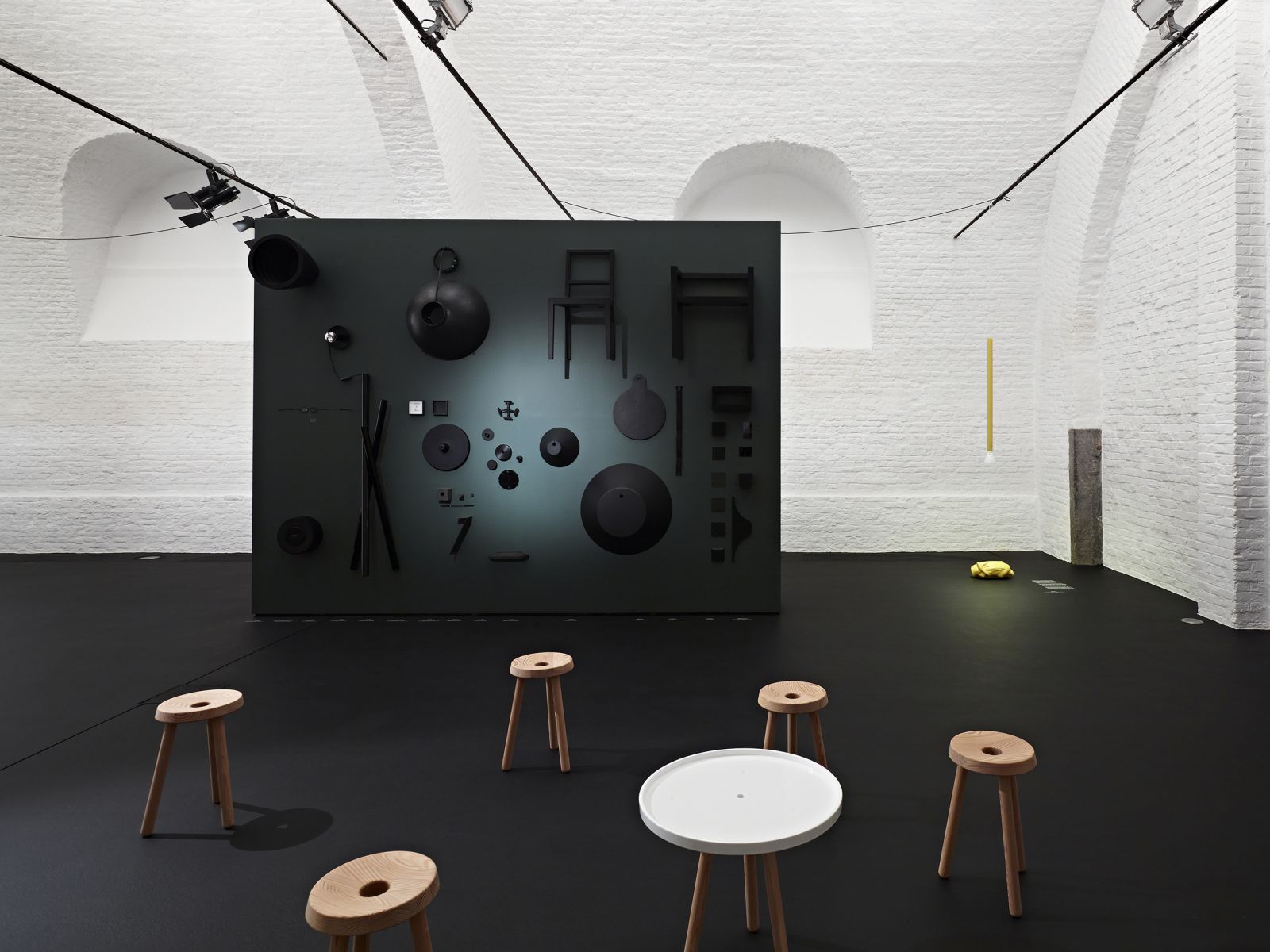

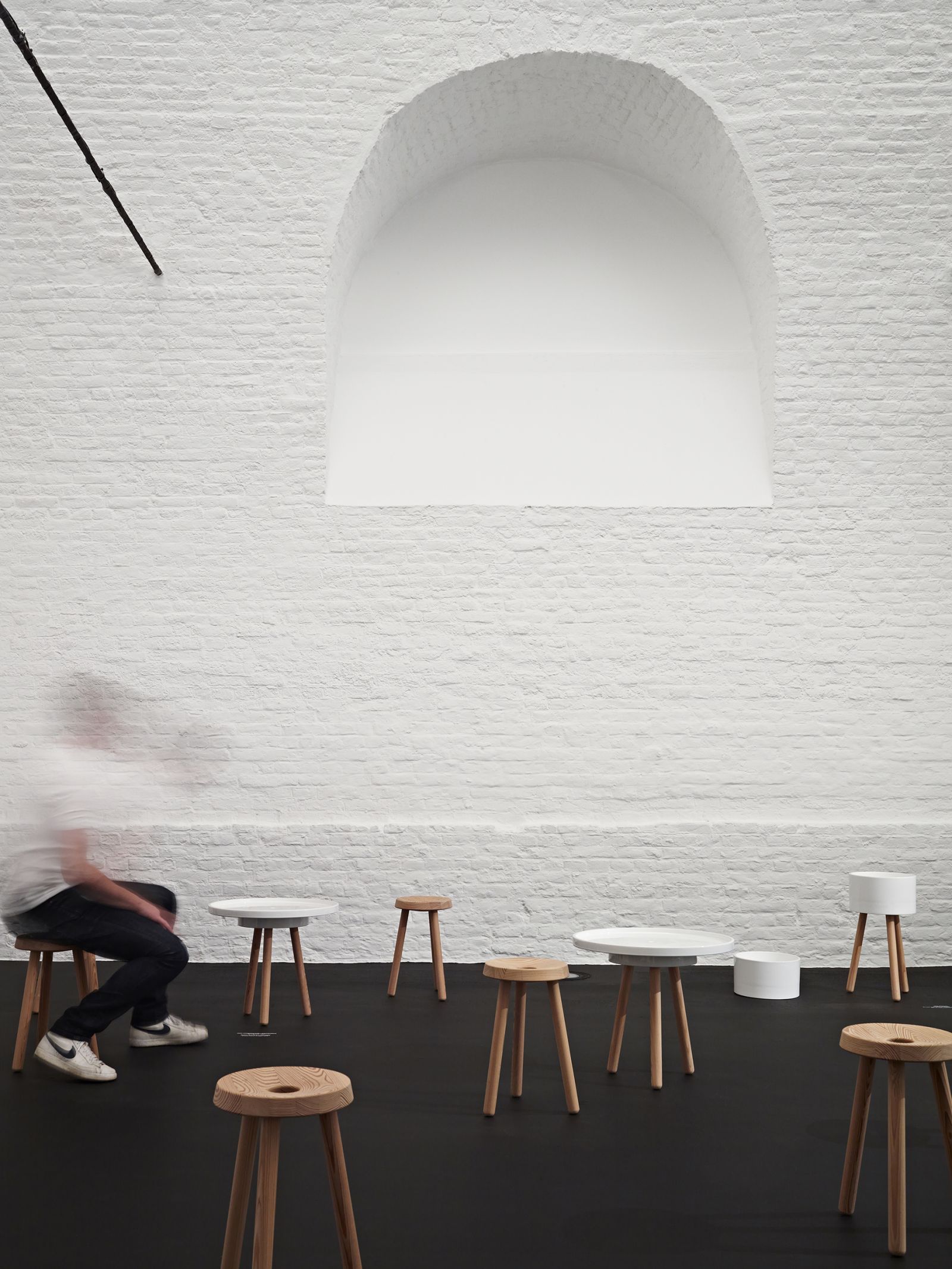
Eloge du pépin
By Giovanna Massoni
The details are not the details. They make the design, said Charles Eames. Design is above all the critical observation of experiences and human activities, close up and from a distance. The role of the designer is to create useful and manageable interfaces that facilitate and enrich our relation with daily life, by means of more or less fixed criteria: Aesthetics, functionality and ethics. The intimate and the personal are transposed into simplified forms at the boundary of abstraction: This combination brings accessible and universal codes into life.
Readable through experience, the design of Jean-François D’Or is almost a tactile language. The ergonomics of the object and an intuitive functionality are the strong points in a search for democratic based solutions.
Here, the demos is more present that ever, as Jean-François is a learned but humble mediator: The designer is never a creator in the divine sense of the term, but rather an interpreter, a facilitator and a communicator of solutions.
The result is a new generation of everyday utensils: Intelligent, fair, calibrated and sufficiently elementary such that everybody can appropriate them. He has an etymological regard on the object and its usage. Logic comes into play to deconstruct and reconstruct a meaning.
The starting point is always on a small scale, observation and experience anchored in everyday life. The arrival point is the experience of the object, which flourishes harmoniously during usage.
Ingenious and poetic, the solutions contained in the purified and modular forms are always multiple: A stool is not only a means of sitting down; a mirror is not just a device that reflects our image… Less is more? Undoubtedly, but here the more is also something else: The unexpected, the surprise, and playfulness.
Link to monographic book.
